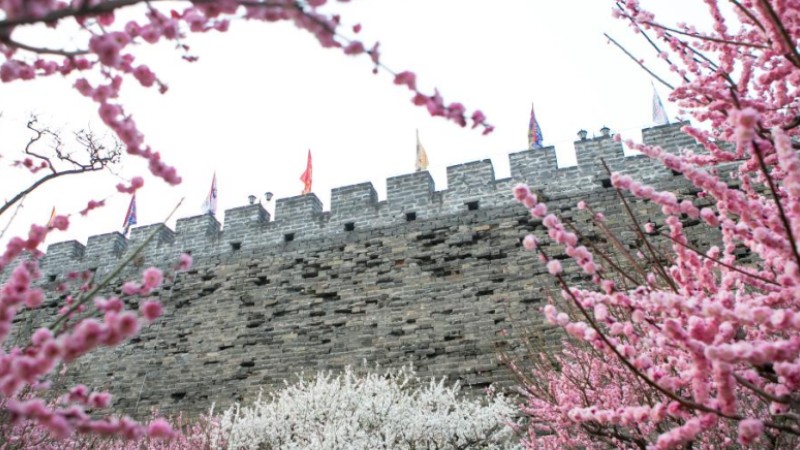Commentary: Closer China-Russia ties vital to building a multipolar world
BEIJING, March 22 (Xinhua) -- While Chinese President Xi Jinping travelled to Russia on a state visit, some Western politicians and media outlets are hyping up claims that China is standing with Russia regarding the Ukraine crisis.
However, it is unnecessary for the West to be sceptical of closer China-Russia relations. China has made its stance very clear that China-Russia relations are not the kind of military-political alliance during the Cold War, but transcend such an old model of state-to-state relations and have the nature of no-alliance, no-confrontation and not targeting any third party, according to the latest joint statement released by China and Russia on deepening their comprehensive strategic partnership of coordination for the new era.
China has also reiterated its stance on the Ukraine issue. Maintaining an objective and impartial position based on careful consideration of the facts, China stands ready to continue to play a constructive role in promoting the political settlement of the Ukraine crisis and will actively promote peace talks as the only viable solution to the Ukraine crisis. The latest Iran-Saudi Arabia reconciliation is the strongest testament to China's diplomatic efforts toward peace.
In fact, featuring mutual trust, peaceful coexistence and win-win cooperation, the relationship between China and Russia sets a good example of the new model of major-country relations.
As neighbors and major global players, China and Russia have many reasons to maintain a steady and healthy development of their relations. Their past interactions have inspired both sides to uphold equality and mutual respect in their relationship with non-interference in each other's internal affairs and support each other in following a development path suited to respective national realities at its core.
Benefiting from bilateral high-level political mutual trust, the two neighbors have not only effectively managed differences, but have also joined forces to secure regional and international peace and stability for common development through bilateral cooperation and multilateral coordination within the Shanghai Cooperation Organization, BRICS, and other international frameworks.
However, looking westward, the expansion of the North Atlantic Treaty Organization (NATO) dominated by Washington has fueled distrust between Europe and Russia. The seeds of discord sown by Washington have finally sprouted into the worst conflict in Europe since 1945.
The deep cause of the Ukraine crisis is the expansion of NATO, and "the Russians are reacting to the West's attempt to make Ukraine a western bulwark on Russia's border," said John Mearsheimer, political science professor at the University of Chicago.
It seems that decision-makers in Washington cannot let go of the zero-sum Cold War mentality. They are trying to frame the world in the pseudo-proposition of "democracy vs autocracy," while their own democracy is deeply troubled at home.
They are also trying hard to form cliques and impose their ideology on others even by punishing their own allies or attempting to overturn some governments through "color revolutions" so as to suppress differences and maintain its global hegemony, resulting in upheavals around the world.
China and Russia, together with most of the developing world, share both the need and motivation to safeguard the UN-centered international system, a multi-polar world, greater democracy in international relations and the common values of humanity -- peace, development, equity, justice, democracy and freedom.
For the developing world, said Abdoul Karim Drame, a Malian political columnist and expert on geopolitics, the strengthening of China-Russia relations is expected to promote the developing of a multipolar world, which will allow African countries to better assert their sovereignty by benefiting from more balanced international relations that respect each nation's political and economic choices.
The old days of a unipolar world have long gone. Power politics and hegemonic ambitions belonged to the Cold-War era, rather than today's world that is becoming inevitably multipolar and increasingly diverse.
To realize a world with lasting peace, universal security, and common prosperity, it is necessary for all countries in the world to take a new path. Beijing, Moscow, along with the rising Global South are working hard on that.
Photos
Related Stories
- Chinese FM expounds on Xi's state visit to Russia
- Highlights of Xi and Putin's talks in Russia
- Xi returns to Beijing after state visit to Russia
- CIIE becomes important driving force for expanding China-Russia economic and trade cooperation
- China actively encourages peace talks to resolve Ukraine crisis: Xi
Copyright © 2023 People's Daily Online. All Rights Reserved.









